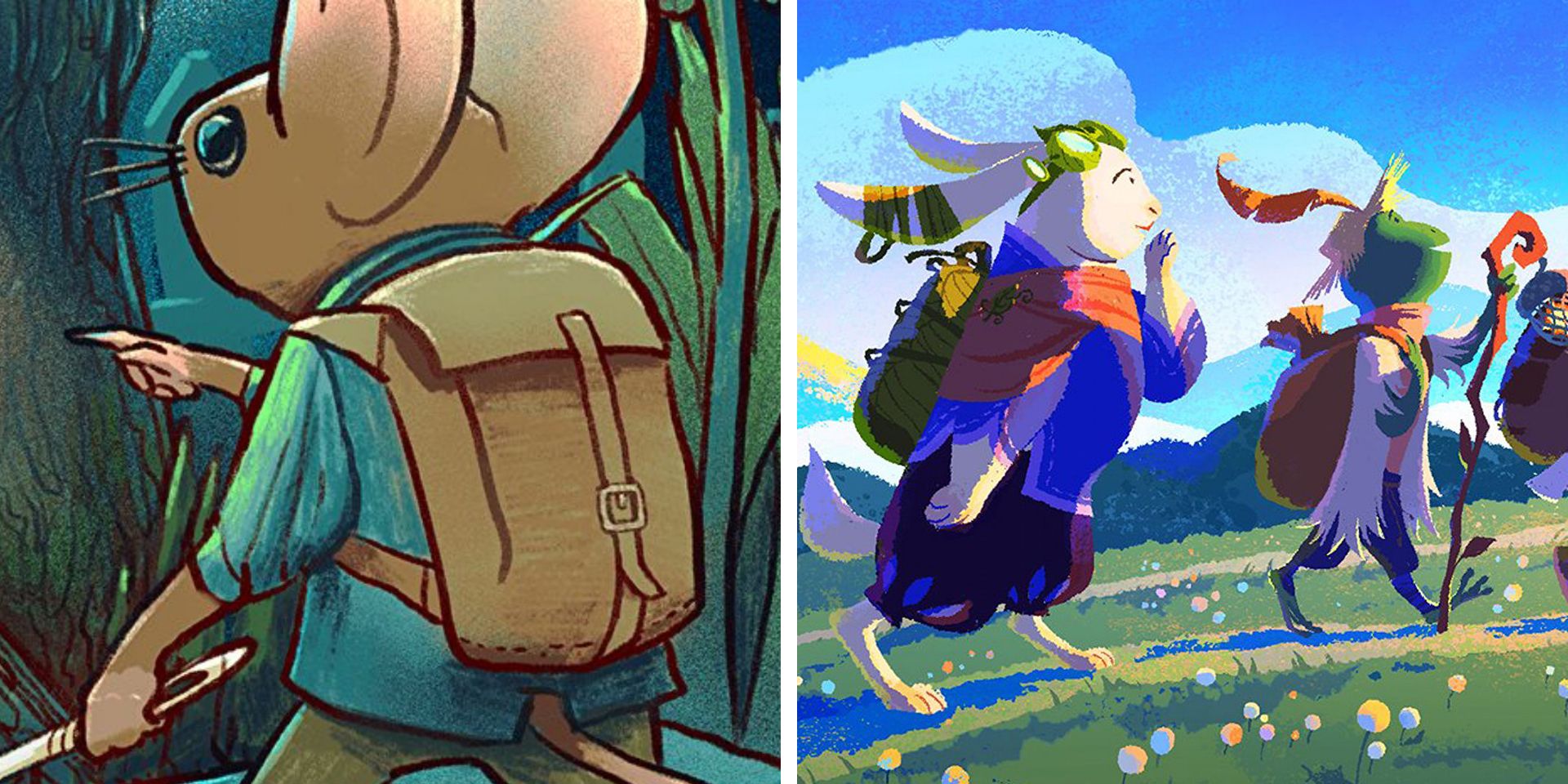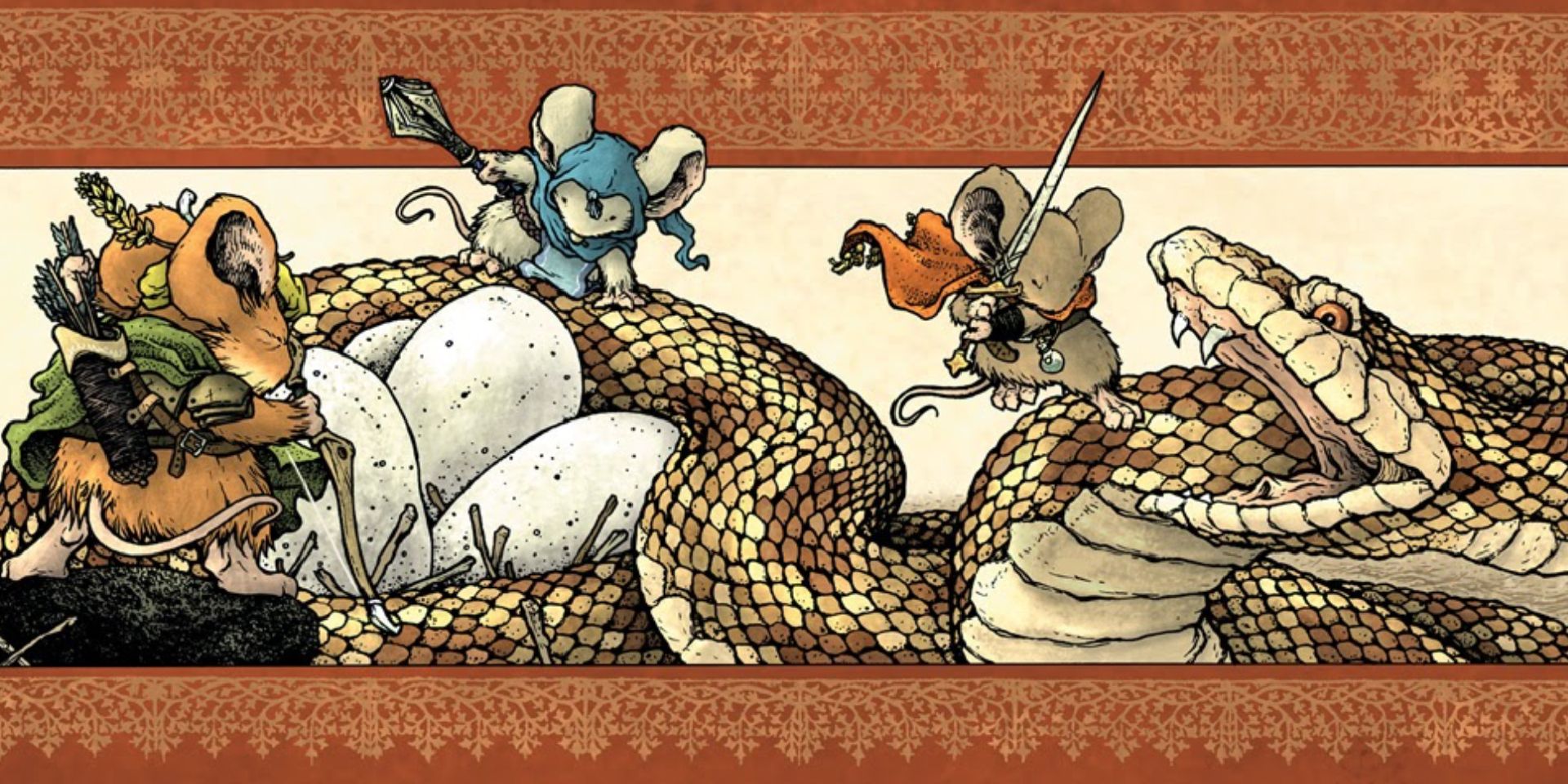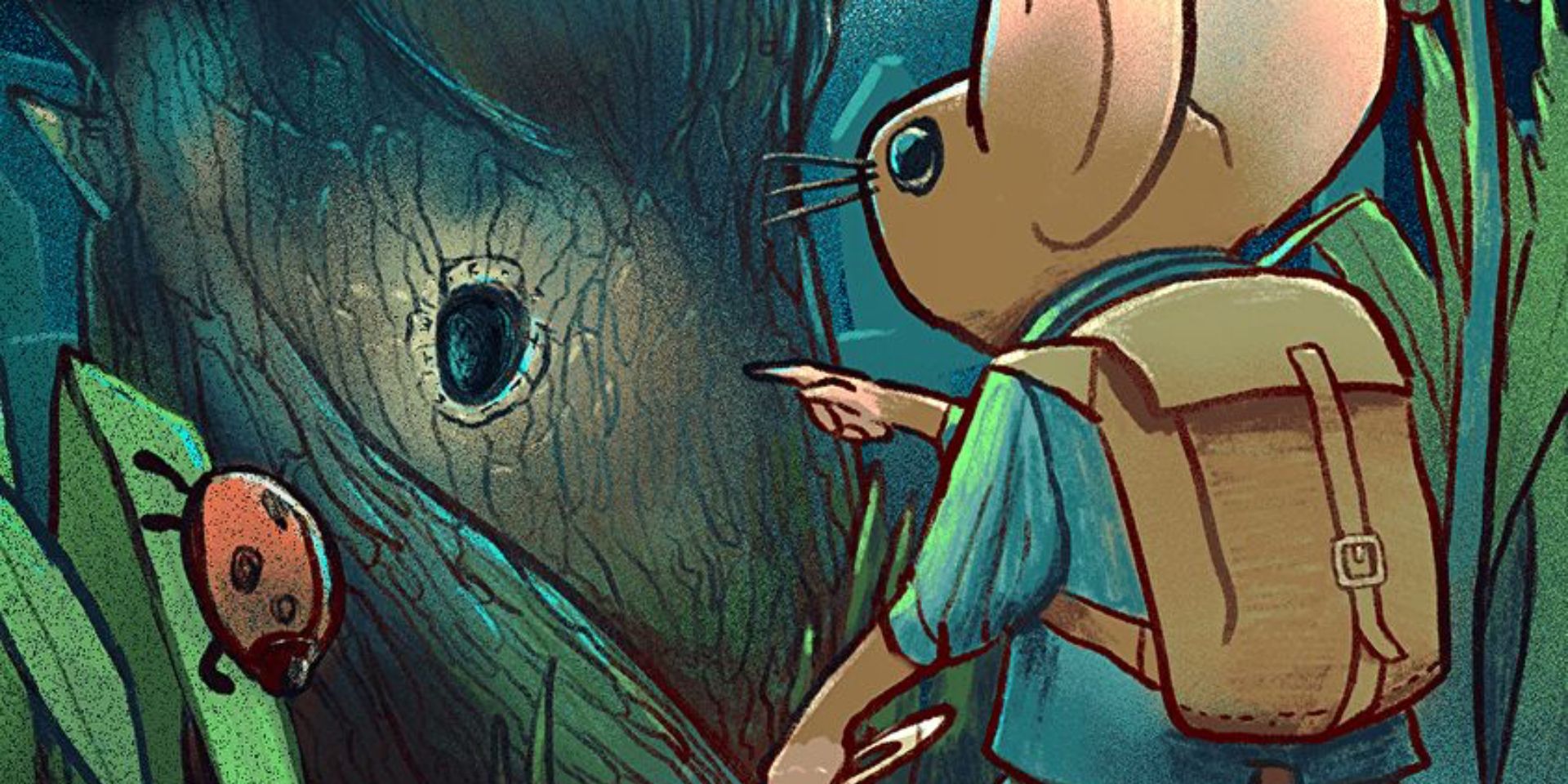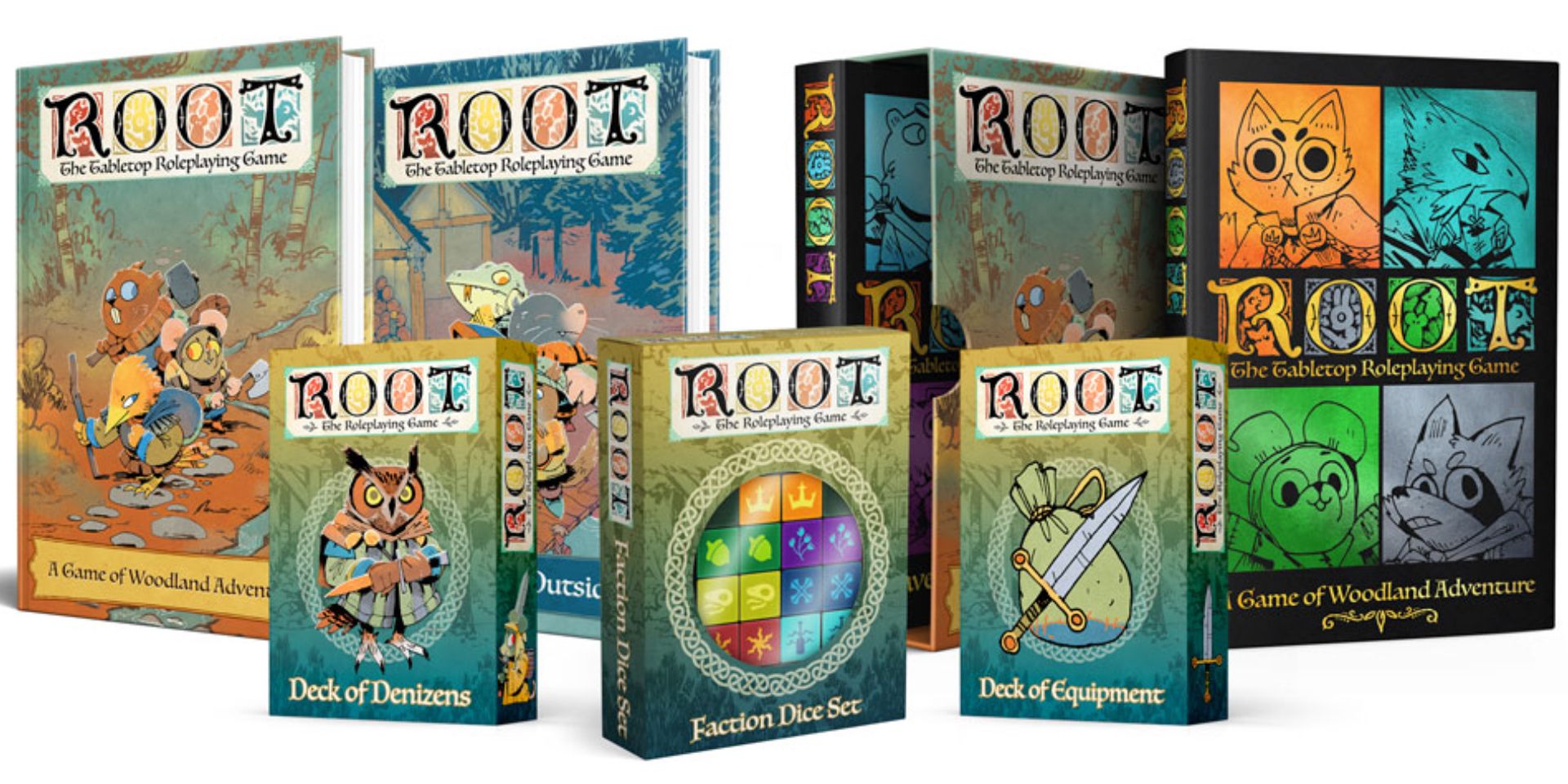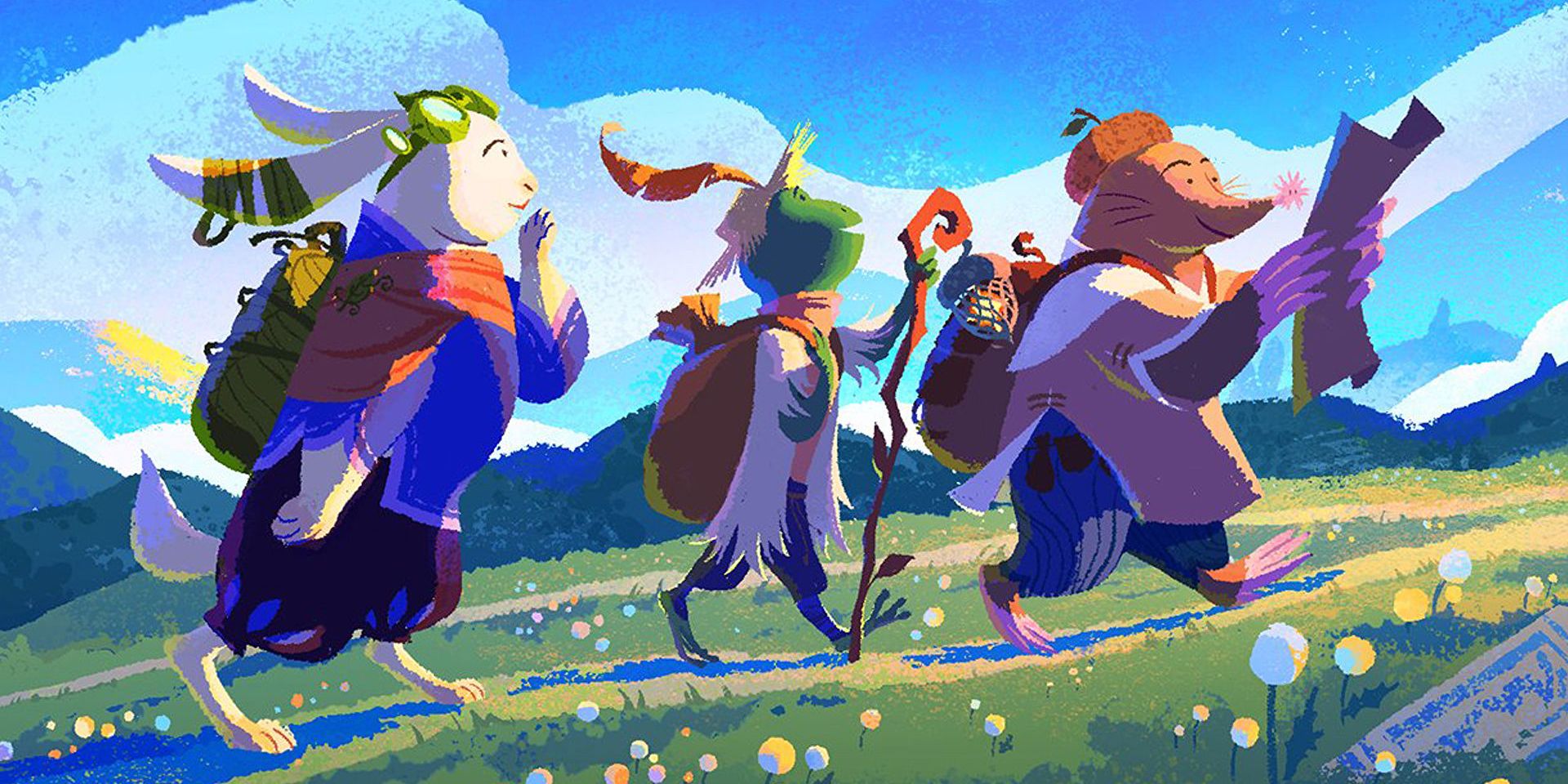Redwall, Mouse Guard, The Secret Of Nimh, The Great Mouse Detective, The Wind In The Willows; these books and movies are all examples of media featuring tiny anthropomorphic animals - mice, frogs, birds, badges, and rabbits who talk, act, and build societies like humans while still living in a vast, untamed world full of things larger than them. With the roleplaying systems listed below, tabletop gamers can run campaigns inspired by these tales of talking critters, both as stories of adventure and as social parables.
Long after the mysterious Aesop concocted a set of fables with talking animal protagonists, tales with anthropomorphic characters have continued to be used to entertain children and satirize aspects of human society through a shroud of plausible deniability. Mr. Toad from The Wind In The Willows, for example, is a parody of self-absorbed, eccentric country aristocrats from Edwardian-era England. On a more dark note, the graphic novel Maus by Art Spigelman retells his own father's story of surviving the Holocaust by making Jewish people mice and Germans cats.
Technically, any tabletop RPG system can be used to tell a story about animals that behave and act like humans (as seen in the Dimension 20 D&D Campaign Mice & Murder, which combines the anthropomorphic world of The Wind In The Willows with a classic mansion murder mystery plot). These games, however, mixes straightforward rulesets with vivid world-building to let gamers tell the "talking animals" tales they want to - whether as tales of social allegory, or adventures about small heroes surviving in a world with big predators.
Mouse Guard Role Playing Game
The Mouse Guard Roleplaying Game is a tabletop adaptation of the Mouse Guard graphic novels by David Petersen, about a group of valiant field mice from a medieval society who act as rangers, scouts, and guardians protecting their fellow critter from giant predators, weasel warlords, and harsh weather. Built around a simplified version of the Burning Wheel system, the Mouse Guard Roleplaying Game works well for telling tales of desperate heroics and perilous odds as PCs escort caravans, patrol borders, and fend off fierce snakes.
Mausritter
Mausritter, published by Losing Games, similar in spirit to Mouseguard and the Redwall books, is a self-described "sword-and-whiskers" roleplaying game about brave mice struggling to survive in a dangerous and large world. The rules of Mausritter draw heavy inspiration from the Old-School Renaissance school of RPG design, particularly when it comes to the mechanics of the rules-light Into The Odd; attacking something is just a matter of rolling a weapon's die against a foe's armor, players can find and master different magical spells, and character creation swift and painless, as befits a game with high-lethality OSR-style combat.
ROOT: The Tabletop Roleplaying Game
ROOT: The Tabletop Roleplaying Game, an adaptation of the four-player strategy board game ROOT: A Game of Woodland Might & Right, is about vagabond critters who live in the frontiers between the four great factions of the Woods. Designed and set to be published by Magpie Games, ROOT: The Tabletop Roleplaying Game uses the "Powered By The Apocalypse" system to tell stories about heroes who hold themselves apart from the wars and power games of the woodland nobility, either as mercenaries for hire or defenders of the common folk.
Wanderhome
In contrast to Mouseguard and Mausritter, games focused on the often-violent struggle of the small to survive in the world of the large, the RPG Wanderhome, published by Possum Creek Games, is focused on tales of walking, talking animal travelers who explore and discover a peaceful, pastoral world. Wanderhome's game system, the dice-less "Belonging Outside Belonging" engine first used for RPGs like Dream Askew and Dream Apart, encourage players to tell tales of animal-folk adventurers and ordinary common folk whose lives and tales aren't defined solely by strife; The Wind In The Willows meets a Studio Ghibli film, one might say.
Sources: Magpie Games, Possum Creek Games, Losing Games, Mouse Guard

